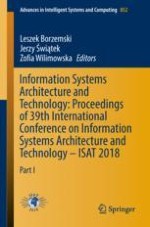2019 | OriginalPaper | Buchkapitel
15 Interpretation Problems in the Semantics of UML 2.5.1 Activities
verfasst von : Karolina Rączkowska, Anita Walkowiak-Gall
Aktivieren Sie unsere intelligente Suche, um passende Fachinhalte oder Patente zu finden.
Wählen Sie Textabschnitte aus um mit Künstlicher Intelligenz passenden Patente zu finden. powered by
Markieren Sie Textabschnitte, um KI-gestützt weitere passende Inhalte zu finden. powered by
